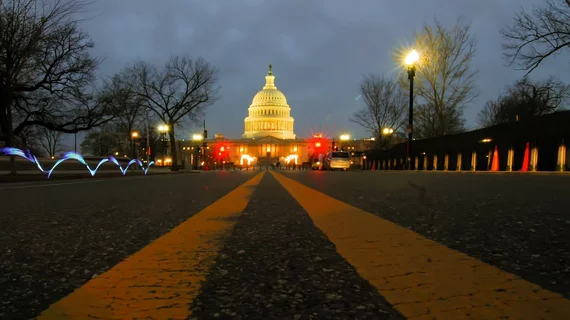Radiology advocates express dismay after stopgap spending bill fails to address specialty’s concerns
Radiology advocates expressed dismay Friday following the passage of a stopgap spending bill they say fails to address the specialty’s concerns.
President Biden signed the resolution on Dec. 3, avoiding a government shutdown and extending funding through Feb. 18. However, the measure did not include any of the changes championed by physicians, including an extension of the 3.75% Medicare pay bump.
As such, radiologists still face a nearly 11% reimbursement reduction beginning Jan. 1, the Radiology Business Management Association said in a “call to action” emailed Friday. Others also expressed frustration following its passage in the U.S. House on Thursday.
“MGMA is deeply disappointed in Congress’ unwillingness to support physician practices despite battling challenges associated with an ongoing pandemic,” said Anders Gilberg, senior VP of government affairs for the Medical Group Management Association, which represents more than 15,000 physician groups across radiology and other specialties. “We urge congressional leadership to heed our call and prevent these cuts, which will have a significant impact on medical groups and the millions of Medicare patients they treat,” he added later.
In its Friday call to action, RBMA said conversations with congressional staffers and policymakers have indicated there is bipartisan support for addressing physician pay cuts. However, the two parties have not been able to reach an agreement on how to pay for such budget changes, with unspent funds from the provider COVID-19 relief fund one possibility. Passage of a standalone healthcare legislation before the year’s end is possible “although unlikely,” the association said.
RBMA, the American College of Radiology, Society of Interventional Radiology and some 300 other organizations are pressing politicians to address the cuts while also urging physicians to contact their representatives.
“Maintaining this level of funding will provide much-needed stability for physician and non-physician providers, as well as their patients, and provide an opportunity for renewed discussions regarding long-term systemic reforms in the New Year,” the groups said in a Nov. 29 letter to congressional leaders.

